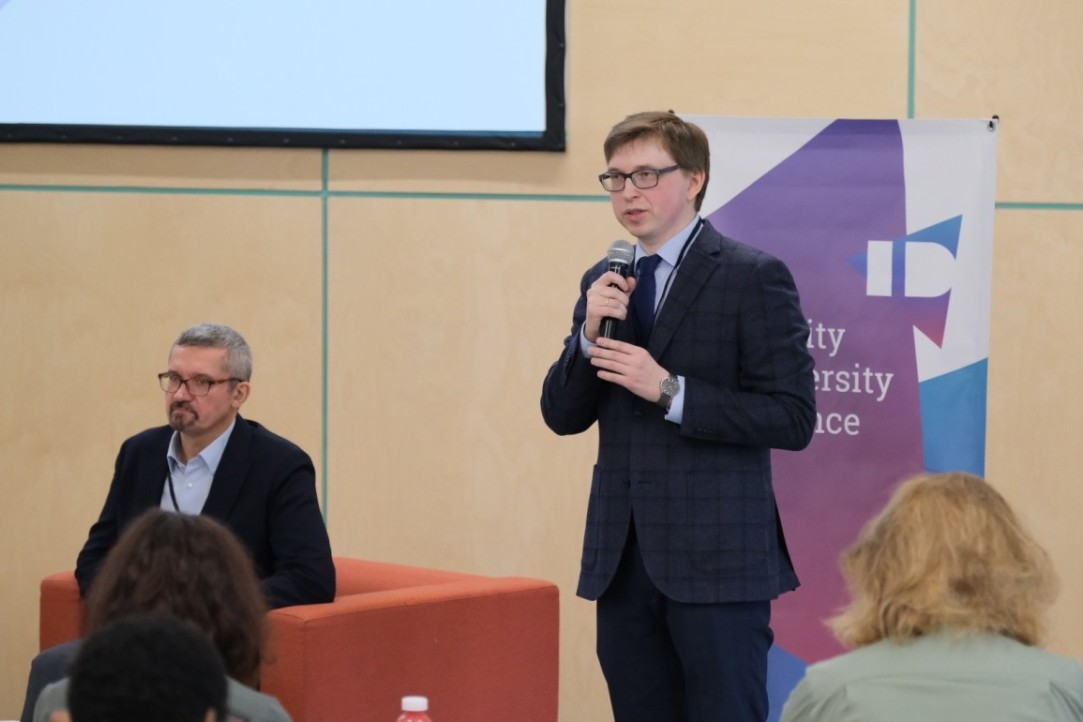«This is a useful, interesting and illustrative magazine on diversity and inequality»
The second St. Petersburg International Conference on Inequality and Diversity (IDC 2020) will take place from 5 to 7 November 2020 at the HSE ŌĆō St. Petersburg. It will be held completely online and will bring together experts from different countries and subject areas.┬ĀWe asked Andrey Starodubtsev, Dean of St. Petersburg School of Social Sciences and Area Studies at HSE, about the program of the Conference, about interdisciplinarity in the social sciences and the benefits of a new conference format.

Attendee registration is open till November 1, 2020. The program of the Conference is available here.
┬Ā
Almost a year has passed since the first Conference on Inequality and Diversity was held. How would you evaluate its outcomes?
Our first conference was largely an experiment. We planned a big conference on topics that we considered central to the social sciences ŌĆö inequality and diversity. At that time, it was in many ways a step into the unknown. Usually the conferences are either dedicated to a certain region or have a narrow substantive focus. We decided to organize a conference with a very broad topic. This was our deliberate decision. We wanted to create a truly interdisciplinary platform that would bring together theorists and practitioners. The first conference was a challenge to us. But now we are sure that there is a demand among social scientists for such interdisciplinary academic forums. And indeed, the topics of inequality and diversity are at the crossroads between academic and practical knowledge. From this viewpoint, the second conference is a step forward. This year we have more participants, more panels devoted to contemporary issues related to inequality and diversity.
You have mentioned that the main idea of ŌĆŗŌĆŗthe Conference is interdisciplinarity. Could you tell us if there are any developments at St. Petersburg School of Social Sciences and Area Studies in this regard?
The Conference is a part of our overall program for the development of interdisciplinarity. We try to eliminate disciplinary boundaries and look for new formats in this area. The first format is related to our educational programs. We have a number of undergraduate double-major programs, for example, in Political Science and World Politics, in Sociology and Social Informatics, in Public Policy and Analytics. We are developing such programs at the graduate level as well. For instance, the MA Program in Business and Politics in Modern Asia combines Area Studies, Political Science and Management.
The second format we have introduced this year is the Social Sciences Honors Track, where the most successful undergraduate students in Political Science, Sociology, and Public Administration will take courses originally designed as interdisciplinary. Thus, we are encouraging cross-program mobility.
Furthermore, it is important to mention that all research centers and laboratories at our faculty are interdisciplinary. We believe that it is necessary to focus on big challenges of the modern society, and not on particular disciplines.
What are the key directions of the Conference this year?
Our conference is a useful, interesting, and illustrative magazine on the topic of diversity and inequality. In this magazine, of course, there will be articles devoted to how Political Science, Sociology, Public Administration, and Area Studies study the issues of inequality of diversity. But there will also be topics that are central to the entire Conference. The first one is the regional economy and inequalities on the subnational level. We are organizing IDC-2020 in partnership with the Russian branch of the Regional Studies Association (RSA), and it is an important partner for us. The second topic is the international relations and inequality in the global context.
This year the conference will be held completely online. What are your expectations in this regard?
We are absolutely not afraid of this. The Conference will be held online and broadcast live. We think it will provoke more active participation of speakers and attendees. Of course, it will also help us to expand the audience of the Conference. Now all major conferences and academic organizations are trying various formats for hosting online events. This is a global experiment that will change the image of a scientific conference in the near future.
Moreover, the new format has allowed us to cancel participation fees. Any person in the world can attend our conference completely free of charge, listen to the leading experts and take part in the discussions, while not leaving home or a classroom. And we think this is great!
┬Ā
St. Petersburg International Conference on Inequality and Diversity is an international and interdisciplinary forum for scholars from various research fields. The Conference will bring together more than 100 speakers from different countries.
The keynote speakers of IDC 2020 are:
- Matthijs Bogaards,┬ĀProfessor, Department of Political Science, Central European University, member of the editorial board of Party Politics, Democratization, Politics and Governance academic journals
- Michael Dorsčüh,┬ĀAssociate Professor of Economics, director of the Master of Public Administration program, School of Public Policy, Central European University
- Robert Huggins,┬ĀProfessor, Director of Research and Innovation, School of Geography and Planning, Cardiff University
- Nicola Piper,┬ĀProfessor of International Migration and Founding Director of the Sydney Asia Pacific Migration Centre at the University of Sydney (Australia). British Academy Global Professor Fellow hosted by Queen Mary University of LondonŌĆÖs School of Law (2019-2022)
- Richard Sakwa,┬ĀProfessor of Russian and European Politics, University of Kent, Associate Fellow of the Russia and Eurasia Programme at the Royal Institute of International Affairs (RISI)
- Thomas Frederick Remington,┬ĀProfessor Emeritus of Political Science, Emory University, Associate of the Davis Center for Russian and Eurasian Studies, Harvard University
- Christian Welzel,┬ĀAcademic Supervisor of the Laboratory for Comparative Social Research at HSE, Professor at the Leuphana University of L├╝neburg and Director of the World Values Survey project

